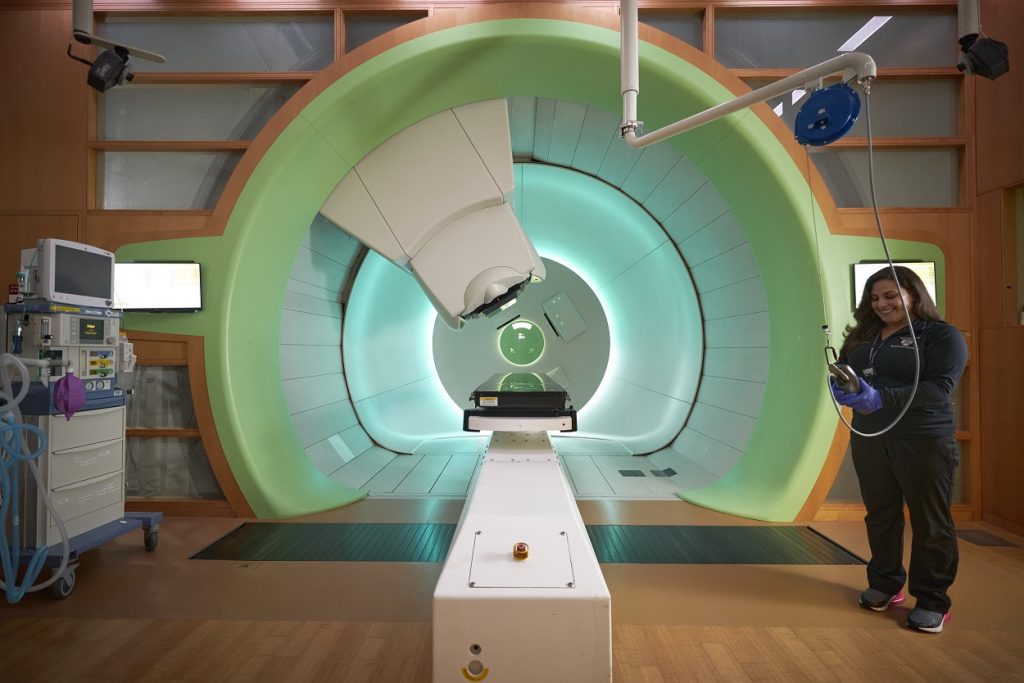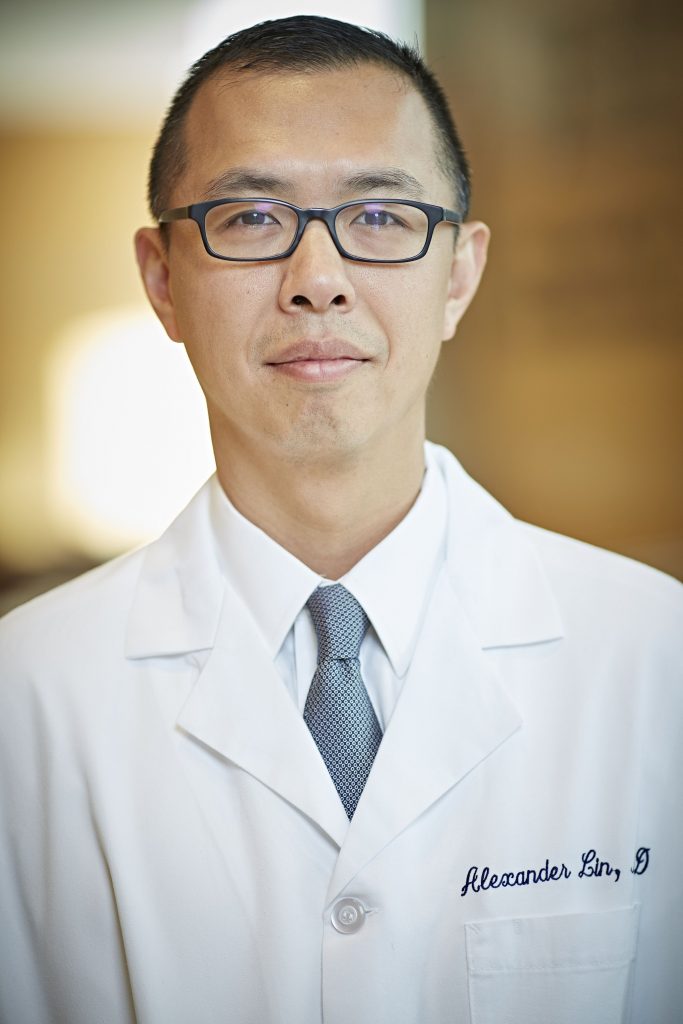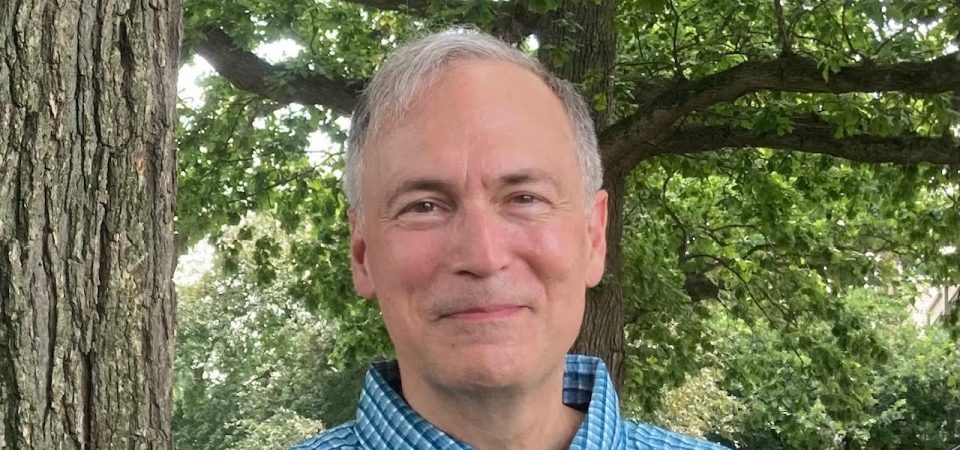Eric Orts is passionate about his work. A tenured professor of legal studies and business ethics at the Wharton School of the University of Pennsylvania, he teaches classes, attends seminars, leads speaking engagements, conducts research, and has many publications. His workload typically leaves him with a filled calendar. Last year, he took a leave of absence from Penn to run for political office.
When he had already postponed a routine dental appointment and was planning to put it off again, his wife urged him to make the time for the sake of his health — and Orts is glad he did. What started as a routine dental cleaning turned into a life-saving diagnosis.
In October 2021, Orts, 62, was diagnosed with tonsil cancer, a form of oropharyngeal cancer that occurs when malignant tumors develop in the tonsils. Research conducted by Penn Medicine shows that the cancer is most commonly caused by the human papillomavirus (HPV). The rate of oropharyngeal cancer is more than two times higher in men than women, with 63 as the average age of diagnosis.
In the U.S., HPV-associated oropharyngeal cancer is on the rise. According to the American Cancer Society, there will be about 54,000 new cases of oropharyngeal cancer and over 11,000 fatalities in the U.S. in 2022. Symptoms of the cancer can include: a persistent sore throat, pain or difficulty swallowing, a lump in the throat or mouth, or a mass in the neck.
For the West Philadelphia resident, however, the cancer was almost undetectable. Orts recalled having a sore throat for a prolonged period of time, but dismissed the pain and attributed it to “talking too much on the phone.” It was only until his dental cleaning that his dentist discovered an injury on the right palate of his mouth.
Orts credits Dr. Temitope Omolehinwa, an assistant professor of oral medicine at Penn, for making the diagnosis and referring him for immediate tests. She performed a biopsy, which revealed a malignancy, and an MRI confirmed the finding. Orts then talked with his general practitioner at Penn Medicine, Dr. Jack Ende.
“Dr. Jack Ende got notice of [my test results] and he immediately called me up,” Orts recalled. “He said, ‘Eric, we’re going to take care of you. […] We have assembled a team and you’re going to be okay.’”

Overcoming cancer: A dedicated team and effective treatment plan
Within a week of Orts’ diagnosis, he met with a revered group of specialists at Penn Medicine’s Center for Head and Neck Cancer, including Drs. Ara Chalian, Roger Cohen, Alexander Lin, and Gregory Weinstein. With various treatment options given to him, Orts decided to undergo TransOral Robotic Surgery (TORS), reconstruction of his soft palate (the soft tissue portion located at the back of the roof of the mouth), and proton therapy.
“My goal was to be able to return to teaching this spring semester,” said Orts, who has been on faculty at the Wharton School for over 30 years. “I knew Dr. Weinstein, Dr. Chalian, and Dr. Lin were all top people in the field. […] I knew I was in good hands.”
On October 26, 2021, Orts underwent a 12-hour procedure, in which Dr. Weinstein performed TORS — the world’s first minimally invasive robotic surgery technique that he co-developed in 2005 — and Dr. Chalian reconstructed his soft palate. By Halloween, Orts was discharged from the hospital and began his recovery process at home where he was instructed to practice specific exercises to help him speak well again, and swallow liquids and foods.
Orts then began five weeks of proton therapy at Penn Medicine’s world-leading Roberts Proton Therapy Center with Dr. Lin in December 2021. With the use of high-energy radiation beams to precisely target cancerous tumors or cells located near critical organs, proton therapy provides more effective precision and accuracy in comparison to conventional radiation therapy.
“When I met with Professor Orts, we agreed that our mutual goals were to cure his cancer with as few side effects as possible, so that he could soon return to what was most important to him: his writing and teaching duties at Wharton, and time with his family,” said Dr. Lin.

“[The experience] made me appreciate what a wonderful health system we have at Penn and in the U.S.,” said Orts. “There’s nowhere in the world I would have gotten better treatment. I feel privileged to have been able to receive top quality care.”
Staying true to his academic and research roots, Orts also participated in a Penn-based clinical trial that studies the effects of patients who received surgery and proton therapy. He is also now in a clinical study led by Dr. Lin and Dr. Jie Deng, an associate professor in Penn’s School of Nursing, on alternative therapies following treatments. He hopes that participating in these studies will help future generations of individuals facing tonsil cancer.
“I’m very lucky to be a teacher at Penn and have these super-skilled and super-smart doctors, supported by an excellent medical team, who can take care of me,” said Orts. “I’m also lucky to be able to be a subject in studies to advance science, so that future patients will have even better experiences and even better outcomes.”
This past January, Orts completed his radiation and is on the upswing. He no longer has any cancerous tumors and, through speech therapy, is back to talking as he did before. He has also been able to stick to his goal of returning to the Wharton School to teach this spring semester, focusing on what is important to him: business, social responsibility, and the environment.
“When you have a brush with mortality like this, you think of what really matters to you,” said Orts. “For me, I care about climate and I’m going to continue to work to deal with the climate problem. […] I’m happy to have a chance now to be doing it for a lot longer.”
For more information about Penn Medicine’s Roberts Proton Therapy Center and the Center for Head and Neck Cancer, visit penncancer.org.

